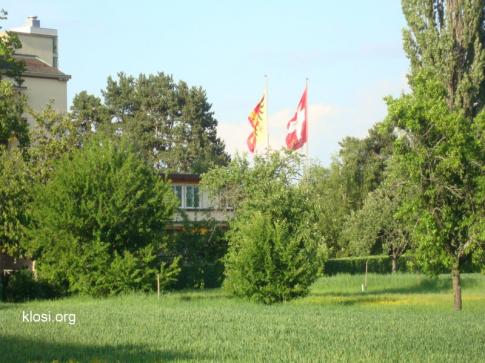* * *

Some days afterwards one or two other corps; and then, still afterwards, a good part of Sherman’s immense army, brought up from Charleston, Savannah, &c.
Walt Whitman
The Grand Review
FOR two days now the broad spaces of Pennsylvania avenue along to Treasury hill, and so by detour around to the President’s house, and so up to Georgetown, and across the aqueduct bridge, have been alive with a magnificent sight, the returning armies. In their wide ranks stretching clear across the Avenue, I watch them march or ride along, at a brisk pace, through two whole days—infantry, cavalry, artillery—some 200,000 men. Some days afterwards one or two other corps; and then, still afterwards, a good part of Sherman’s immense army, brought up from Charleston, Savannah, &c.
A Soldier on Lincoln
May 28.—AS I sat by the beside of a sick Michigan soldier in hospital to-day, a convalescent from the adjoining bed rose and came to me, and presently we began talking, He was a middle-aged man, belonged to the 2d Virginia regiment, but lived in Racine, Ohio, and had a family there. He spoke of President Lincoln, and said: “The war is over, and many are lost. And now we have lost the best, the fairest, the truest man in America. Take him altogether, he was the best man this country ever produced. It was quite a while I thought very different; but some time before the murder, that’s the way I have seen it.” There was deep earnestness in the soldier. (I found upon further talk he had known Mr. Lincoln personally, and quite closely, years before.) He was a veteran; was now in the fifth year of his service; was a cavalry man, and had been in a good deal of hard fighting.
Some Sad Cases Yet
May 31.—JAMES H. WILLIAMS, aged 21, 3d Virginia cavalry.—About as mark’d a case of a strong man brought low by a complication of diseases, (laryngitis, fever, debility and diarrhœa,) as I have ever seen—has superb physique, remains swarthy yet, and flushed and red with fever—is altogether flighty—flesh of his great breast and arms tremulous, and pulse pounding away with treble quickness—lies a good deal of the time in a partial sleep, but with low muttering and groans—a sleep in which there is no rest. Powerful as he is, and so young, he will not be able to stand many more days of the strain and sapping heat of yesterday and to-day. His throat is in a bad way, tongue and lips parch’d. When I ask him how he feels, he is able just to articulate, “I feel pretty bad yet, old man,” and looks at me with his great bright eyes. Father, John Williams, Millensport, Ohio.
June 9–10.—I have been sitting late to-night by the bedside of a wounded captain, a special friend of mine, lying with a painful fracture of left leg in one of the hospitals, in a large ward partially vacant. The lights were put out, all but a little candle, far from where I sat. The full moon shone in through the windows, making long, slanting silvery patches on the floor. All was still, my friend too was silent, but could not sleep; so I sat there by him, slowly wafting the fan, and occupied with the musings that arose out of the scene, the long shadowy ward, the beautiful ghostly moonlight on the floor, the white beds, here and there an occupant with huddled form, the bed-clothes thrown off. The hospitals have a number of cases of sun-stroke and exhaustion by heat, from the late reviews. There are many such from the Sixth corps, from the hot parade of day before yesterday. (Some of these shows cost the lives of scores of men.)
Sunday, Sep. 10.—Visited Douglas and Stanton hospitals. They are quite full. Many of the cases are bad ones, lingering wounds, and old sickness. There is a more than usual look of despair on the countenances of many of the men; hope has left them. I went through the wards, talking as usual. There are several here from the confederate army whom I had seen in other hospitals, and they recognized me. Two were in a dying condition.




 del.icio.us
del.icio.us Digg
Digg

Post your comment